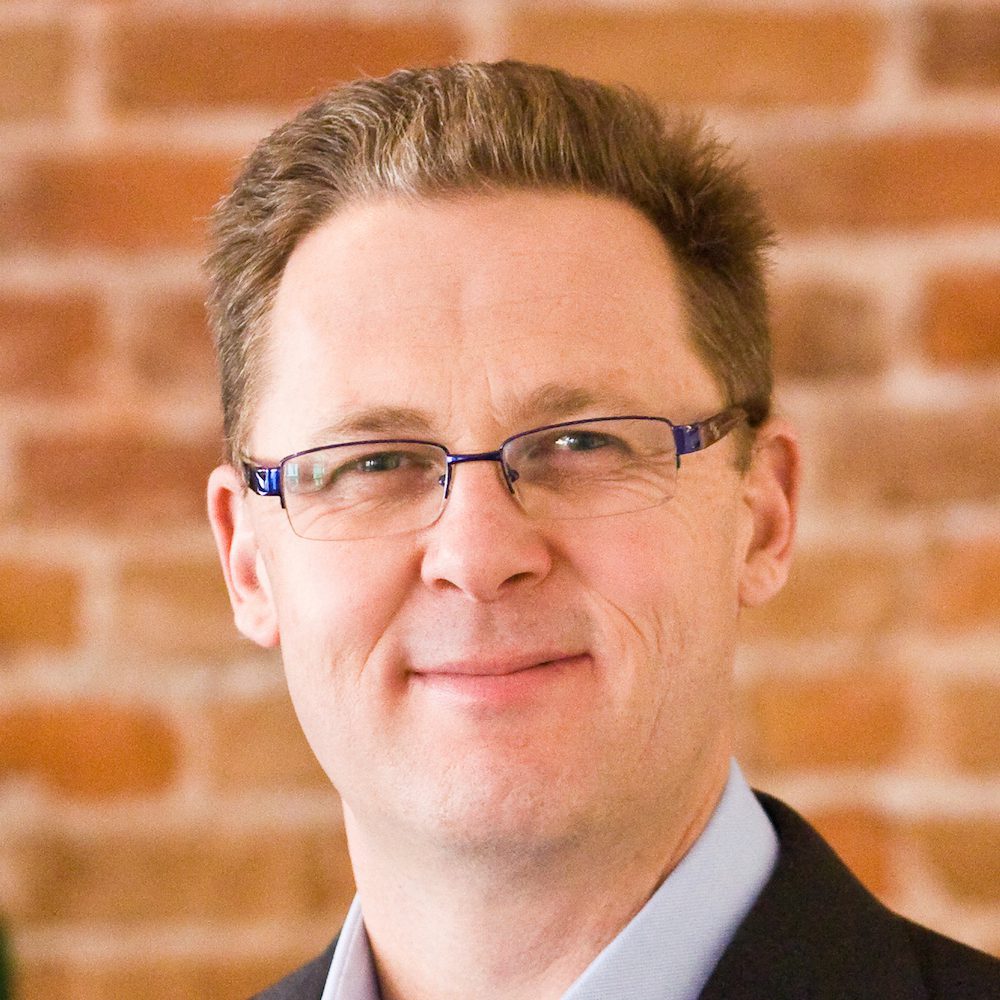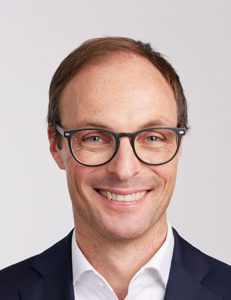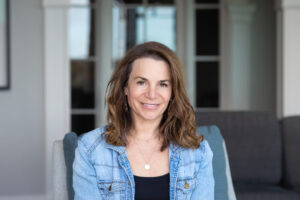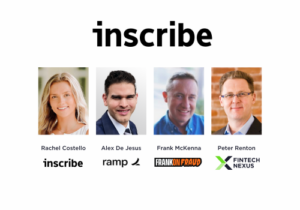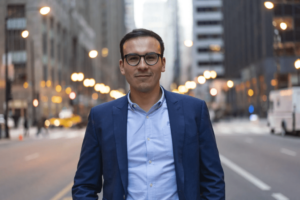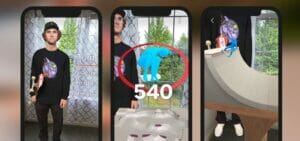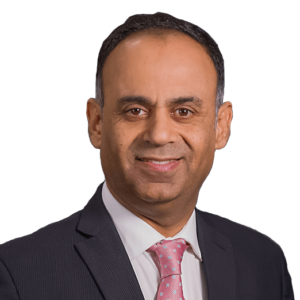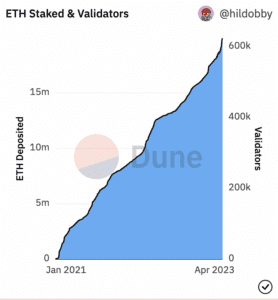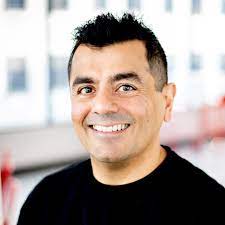Enjoying our podcasts? Don’t miss out on future episodes! Please hit that subscribe button on Apple, Spotify, YouTube, or your favorite podcast platform to stay updated with our latest content. Thank you for your support!
When you think of cutting-edge fintech you probably don’t think about the Caribbean. But some interesting developments are happening there that we should all be paying attention to.
On this episode of the Fintech One-on-One podcast, I talk with Curt Persaud, the Co-founder and CTO of Fintech Islands and Andrew B. Morris, the Chief Content Officer at Fintech Islands. This is the biggest fintech event in the Caribbean and it is happening next week (January 24-26) in Barbados. I will be there along with many other U.S. and Caribbean fintech leaders.
The Caribbean is an under-appreciated region, it is in our backyard with more people (45 million) than Canada. There is a strong entrepreneurial spirit and a thriving fintech industry there already, that is poised to grow significantly in the near future.
In this podcast you will learn:
- The founding story of Fintech Islands.
- Why Americans should care about Caribbean fintech.
- The important fintech trends in the region.
- Details about the Fintech Islands event.
- The different topics being covered on their agenda.
- How their startup competition will work.
- How people can engage with Caribbean fintech beyond the event.
Read a transcript of our conversation below.
Peter Renton 00:01
Welcome to the Fintech One-on-One podcast. This is Peter Renton, Chairman and co-founder of Fintech Nexus. I’ve been doing this show since 2013, which makes this the longest running one on one interview show in all of fintech. Thank you for joining me on this journey. If you liked this podcast, you should check out our sister shows The Fintech Blueprint with Lex Sokolin and Fintech Coffee Break with Isabelle Castro, or listen to everything we produce, by subscribing to the Fintech Nexus podcast channel.
Peter Renton 00:31
Before we get started, I want to remind you about our comprehensive new service. Fintech Nexus News not only covers the biggest fintech news stories, our daily newsletter delivers the most important fintech stories into your inbox every morning, with special commentary on the top story of the day. Stay on top of fintech news by subscribing at news.fintechnexus.com/subscribe.
Peter Renton 01:09
Today on the show, we are doing something quite a bit different. We are talking about fintech in the Caribbean. Yes, I am delighted to welcome Curt Persaud. He is the co-founder and CTO of Fintech Islands, along with Andrew Morris, who many of you know from his Money20/20 days, he is the Chief Content Officer of Fintech Islands. And what is Fintech Islands? Well, it is the leading event in the Caribbean for fintech. It’s happening later this month in Barbados, I’m going to be there and it is going to be, I think, a fascinating event. So we obviously talk about the details of the event. But we’ll also talk about fintech in the Caribbean. What are the major trends, why it’s important, why Americans should actually care about it. And we obviously go through also some of the details of the event as far as the social activities, what is going to be covered from a content perspective, the startup scene, and and much more. It was a fascinating discussion. Hope you enjoy the show.
Peter Renton 02:13
Welcome to the podcast Curt and Andrew.
Curt Persaud 02:16
Thank you.
Andrew B. Morris 02:17
Hello.
Peter Renton 02:17
Okay, let’s kick it off by doing some short introductions. Curt, why don’t I start with you. Tell us a little bit about yourself and your background.
Curt Persaud 02:27
Yeah, so I’m the founder and the CTO for Fintech Islands. My background is predominantly in the tech space, but more in the enterprise level, type applications. I got involved in Fintech Islands, just as a part of a broader mission to kind of give back to my community, to my region, which is the Caribbean region. You know, the story of how that was founded we’ll get into later, but, you know, I met up with a few great people along the way. And they’ve helped me to put that vision together. So now we’re on this journey for Fintech Islands.
Peter Renton 02:58
All right. And Andrew, what’s your background?
Andrew B. Morris 03:02
So I’ve been involved in fintech in different ways for 25 years or so. And the last, little more than a decade has been in producing events, like the one that we’re doing with Curt. I was a management consultant in the payments industry, I was an executive at a bank and helped build a digital banking platform years ago. And I attended the first edition of the Money20/20 conference. And be careful when you go to conferences, because you might end up working for them. Because that’s what happened to me, I spoke at the conference the next year, I met the founders and became the first head of content, the Chief Content Officer at Money20/20. So through that journey of helping to build that event, I sort of fell in love with the whole process, the creativity of building an event, the impact you can have on the industry and the community. And being able to look at a really big picture of things that are happening, rather than necessarily being a deep expert in only one thing, you could look across the landscape. And I enjoyed that aspect as well.
Peter Renton 04:12
Me too.
Andrew B. Morris 04:14
Yeah.
Peter Renton 04:15
Anyway, let’s get to the sort of founding story of Fintech Islands. Curt, you touched on it already, but maybe you could just kind of tease out why you decided to start this event and what was the thinking there?
Curt Persaud 04:28
The impetus for this was really around the desire to contribute and to give back to the communities that you know, we’re from, I’m from the Caribbean region. I’m from Barbados. You know, there’s a level of frustration that goes into that, where as we go back to the islands, as we go back to our home town, we see a somewhat lack of progress in certain spaces, specifically around technology, around financial technology, around banking, the way that things are transacted in the Caribbean are, you know, a few years, if not maybe even a decade behind North America and some other developing countries. And being in the tech space, I work in North America, I became a little bit frustrated with the fact that we were so far behind. So I had this idea of, Hey, what is the best way to influence innovation? What is the best way to influence impact within, you know, our home region. And, you know, the idea of bringing people that were experts, thought leaders, people that were innovating from around the world and bringing them into the area that you’re trying to impact, and having them contribute or share their stories, may become a catalyst for that movement. Allison, who’s the co-founder, who was unfortunately not able to make it today, she’s been a longtime friend of mine. She lives in Miami with me, I reached out to her I said, Hey, do you mind let’s grab coffee today. So we hooked up over coffee and I shared my idea with her. Now, she is in the production space, she’s in the events, planning, massive productions, 20,000 type people events. And she fell in love with it. So partnering with her and a few other folks that came along later, we kind of developed the idea of the conference, developing the Fintech Island conference. And it was really about two specific goals when we first talked about it in terms of division was really bringing a community of, of disruptive people to the island. Leaders and people that are redefining technology in the financial space, and then tried to make it serve as a catalyst for building a more inclusive, efficient, financial and technology sector within the region. So those were kind of like the two main goals when we started. And then ever since then, you know, expanded and has a life of its own, and it’s kind of growing, the community is growing. And the direction that we’re taking it is also dynamic, and it’s also growing. So you know, we’re looking to see what happens this year and, and how we evolve the conference and what we’re trying to do.
Peter Renton 07:02
Okay, and so then Andrew, how did you first get involved here? Because you’re not you’re not from Barbados.
Andrew B. Morris 07:07
No, yeah, no, I’m I’m working on my honorary membership. So it was actually interesting. One of my colleagues from Money20/20 Her name’s Lucia Jades, is originally from Trinidad. And she’s a brilliant event operations leader, and had already met Allison and Curt and was beginning to help them put together their vision for Fintech Islands. And she introduced us, she suggested that, you know, with my background, I could be helpful to them. And I’m so happy that happened. Because not only am I not from Barbados, Peter, I had never been to the Caribbean on a vacation before I started working on this project, right. So it was this wonderful opportunity to learn about the culture of the place to learn the nuances. You know, if you’re not familiar with the region, you start to think that all Caribbean islands are the same. No, they’re not right. Every island has its unique culture. There’s three different languages, there’s 45 million people. And there’s a great amount of diversity across the region. And you start to understand that, and see the talent that’s there, and the opportunity there is for fintech. And so I was very attracted to it. And then with the Rolodex that I have from years of being in the industry and the experience of putting together content for events, I knew that I could be helpful, right, to grow the event. So I got connected through a mutual friend and helped launch the event last year. And this is our second edition coming up. And as Curt was saying, it’s hosting a truly global conference in the region. And that’s the way that it can be a catalyst for the fintech ecosystem there.
Peter Renton 09:01
I’ve actually have never been to the Caribbean either. But I feel like I know it well, because I’m Australian. And we have the game of cricket that the West Indies, when I was growing up, when I was growing up in the 80s in Australia, the West Indies were the greatest cricket nation on the planet. So I got exposed to a lot of the Caribbean there and not quite as good as they used to be. But when you had the likes of Vivian Richards and Clive Lloyd and those characters back in the 80s, it was a lot of fun to watch. But anyway, I digress. Why should Americans, because this is obviously, I’ve got a primary American audience for this podcast, why should Americans care? We’re going to talk about the event in a little bit, but I want to talk about the Caribbean first. Why should Americans care about this from a fintech perspective, this region?
Andrew B. Morris 09:46
So one, it’s a larger market than you realize. I threw out the 45 million people, that’s the population of the whole region, and that’s larger than Canada. It’s about the size of Spain, right? So it’s many different smaller island nations, a lot of diversity there, to scale a business, there’s a complexity of doing that, but it’s a big part of the world. So that’s one thing. The other is that there’s still a lot of cash in the Caribbean. And there’s a lot of opportunity to digitally transform and make things more efficient and more inclusive and to help small businesses and to help consumers. And so there’s opportunity there. There’s tremendous talent in the region. And there are governments and regulators that care, and are trying to think of ways to balance protecting consumers with innovation. And, you know, how can we do that, and it’s not easy to do. But there’s experimentation, and there’s a willingness to try new things. And so I think it becomes an exciting place to things like Central Bank Digital Currencies that…some of the early experiments with that idea have been in the Caribbean, there’s maybe a little less barriers to try new things. And so I think it makes it attractive.
Curt Persaud 11:11
On top of what Andrew mentioned, yeah, it’s, it’s one of the one of the most untapped region if you look at all the spaces that, you know, people are expanding in terms of technology and innovation, and fintech specifically, the other thing is that, you know, with the global economy, you know, the boundaries and borders are less, they’re more ambiguous. It’s pretty much non existent, tapping into another for potential 45 million market is just a huge opportunity for a lot of companies in North America, Europe, Africa, we have, you know, interests all around. And then the other thing is that there’s a huge diaspora in North America, the UK, Europe, you know, Africa, and they play such a pivotal role, the amount of transactions and the dollars that are flowing back into the region back and forth into region is tremendous. And just tapping into that, and figuring out how you could make opportunities, or create opportunities from that is another area that I think is not looked at enough, and is a potential for huge upside for any business or any company trying to go into the Caribbean region.
Andrew B. Morris 12:21
And the diaspora is a really interesting point. US cities like New York, even Toronto, and Canada, Miami, of course, because of proximity, but also Atlanta, where I’m based, that one of our speakers at the event is the Chief Financial Officer of TIAA, right. Reports to Thasunda Duckett, this rockstar CEO, huge job. He’s from Barbados. And he’s coming back to speak, and to be a part of our event, Dave Dowrich. And so you see a lot of influence of the diaspora, globally. And how that then with the tourism in the region, so many global connections that pass through that part of the world. And it’s just an amazing melting pot for kind of global commerce, if you will.
Peter Renton 13:09
So what’s sort of the state of fintech in the Caribbean right now? What are the important trends that the people should be aware of?
Andrew B. Morris 13:18
One thing that I’m seeing is, you know, we put together the content for the event, is some of the traditional players, the incumbent banks and larger players are working to digitally transform the way they do business. And they’re doing it by, in some cases, by being supportive of fintech startups, which is interesting. The sponsor of our startup pitch is a bank, Republic Bank. They’re doing it by partnering with companies like systems integrators like IBM, bank as a service, embedded banking providers, like InBank. Another company called InfoCorp, so you’re seeing these global providers that are involved in banking as a service and open finance, beginning to partner and engage with Caribbean financial institutions to help them digitize the way they do business. So that’s one thing that’s interesting. The other is starting to see some startups get some traction, right? There’s a really interesting company called First Atlantic Commerce that processes ecommerce payments all across the region. That’s doing very well. There are a number of mobile wallet providers doing some interesting things. And so it’s still early days, which is why this event exists, to be that catalyst and to propel the region. But there are signs of that the region’s receptive and ready to kind of proceed with this fintech revolution in the Caribbean.
Curt Persaud 14:46
So we’re seeing, as I mentioned, there’s a lot of wallet payment, wallets that are coming up in the region. So I think cashless is a big thing. There’s a lot of kind of like, small business, micro-type business transactions that happen that are, predominant in the region, very cash-centric. And there’s a lot of push to kind of move those to a digital, digital form, a digital platform, whether it’s either payment wallet or direct B2B transactions with the service provider or banking institution. So we’re seeing a lot of that. And then, you know, we’re seeing also a lot of push from the, from the big incumbent banks in terms of financial inclusion, and a lot of education, right, trying to push more into the market where, towards the young people, and educates them in terms of like financial literacy and stuff like that. So a lot of them are adopting, and white labeling a lot of products that teach that. So they’re embedding those products into their suite of applications or into their banking profile or portfolio of applications. So we’re seeing that. So we’re seeing really, really positive signs and really good traction, things that five years ago, you would have never seen. When we first kicked off this event, we started it back in 2021, preparing for our launch in 2022. You know, there was a lot of skepticism from some of the major players in terms of where this would go and whether there was a real true need for this type of digitisation and innovation in this space. But we’re happy to say in such a short space between 2021 and now, we’re seeing a lot of adoption and a lot of support from the big players and in the industry.
Andrew B. Morris 16:29
And the other thing I would say is the central banks, and regulators, the innovation that happens there with Regulatory Sandboxes, and Central Bank Digital Currencies, that I think that’s good for the environment. And there’s partnerships with the private sector in some of those initiatives, as well.
Peter Renton 16:49
Okay, so let’s talk about the event itself. Maybe you could just give us a little bit of a synopsis about some of the, just some of the details, where it is, when it is, and what people can expect to, who are going to be attending.
Curt Persaud 17:04
We’re hosting a global event on the beautiful island of Barbados, we have a very comprehensive agenda in terms of bringing thought leaders, innovators, startups, academics, to the event to contribute and share their stories and learn and interact. We’re really really embracing the networking and the one-on-one type activities, because I think that’s where we see a lot of value, especially from the first one that we did, I think that came out, came through very clearly that that was one of the most important aspects of it. So we’re really leaning into making sure we make the right connections, we put people together, we put people, the right people in the right room to make those connections, make those deals. The other major thing that I would say about it is that what we really wanted to do is also showcase the host island. We didn’t want it to only make it about everyone coming to the conference and being stuck in a presentation type setting, we wanted to make sure we embrace and bring the culture and bring the feel of the host island. So as part of it, we’re really leaning into the experience where we share the culture of the host island, we share the culture of Barbados, we share the culture of the people there. And we’re intertwining that into the mix of how we network, right. So that is very important. We have a lot of different activities that tap into that and allow people to meet and network in a setting that is not so sterile as a meeting room or a presentation room. But something that’s more natural and organic, where we think would be more conducive for better partnerships and better conversations. You know, what we’re trying to do is tremendous. People will get a lot of benefit from attending the conference.
Andrew B. Morris 18:46
I never once saw people exchange LinkedIn profiles on a catamaran when I was working at Money20/20, but that does happen at Fintech Islands. And then, in terms of the speaker lineup and the content for the event, it’s over three days. The first day is a bit more content heavy than the second two, there’s a lot happening on that first day, a general session that features Peter Renton, you may have heard of him. But Peter, we’re excited that you’re going to be there and doing an interview with a senior executive from MasterCard, who is one of our major sponsors. There’s some great content in the morning general session. And then we’ve organized some what we call deep dives that cover different aspects of fintech. There are nine different topics, I won’t rattle them all off, but it’s things like artificial intelligence and open finance and digital assets and innovation in banking. So, you know, opportunities and breakout sessions for people to learn about what’s happening in different areas of fintech. And there are 140 speakers at the event. About half of them are from the Caribbean and we kind of feature the best in the region in fintech. The rest are from the US, Latin America, Africa, Europe, they’re from all over the world. So it’s a very global lineup of speakers. Interestingly, more than half of our speakers are the founder or CEO of the organization they represent. So it’s a very senior group. And we’re really excited about the bankers and fintechs, and investors and policymakers and academics that are a part of that lineup. And all the music and culture of the place where you share those experiences with people in the industry means you build relationships. And that’s that’s how the event’s designed.
Peter Renton 18:46
You mentioned the startup area, is there a startup competition? What’s all that about?
Andrew B. Morris 19:17
Thank you for bringing that up. So we’ve selected, we had an application process, we even did some roadshow, smaller events, pitch events around the region during the year, and selected 10 early stage startups that are either a Caribbean founder or they’re clearly you know, tied to the region. And it’s a very kind of diverse representation of different islands and different aspects of fintech, but 10 companies all sort of pre-seed, early companies. And someone that I think you and I both know, Matteo Rizzi, you know, keynote speaker and advisor and investor has started a nonprofit called The TimePledge Network, where investors and founders will donate time to mentor founders in different markets around the world. So we’ve organized the mentoring sessions for the 10 founders, and all 10 of them will present on the main stage at our event, on the final day. The top three will win cash prizes, but all of them have this great opportunity to showcase what they’re doing as they build their company and receive complimentary passes. And interestingly, there is a program through the United Nations International Trade Center, where they also are working to support startups in the region. And so in addition to sponsoring the event, UN International Trade Center had another cohort of startups that they’re hosting to attend the event. Through their program, and through ours, we’re giving a lot of support to those young entrepreneurs.
Peter Renton 22:25
Beyond the event, how can people engage? How can people stay engaged with Fintech Islands? If they can’t make it in January, how do they stay engaged?
Curt Persaud 22:35
Yeah, they can sign up for our newsletter if they go to Fintech Islands.com. And just sign up for our newsletter that goes out regularly keeping us abreast of you know, what we’re working on, topics that are very relevant to the space and the industry. And then what’s happening with the next planning for our next event. So that will be the kind of the best way, and then also engage with us via our social platforms, LinkedIn, Instagram, and on Facebook, we’re very, very engaged on those platforms. And whenever anyone reaches out, we engage with them, and we connect with them.
Peter Renton 23:09
Final thoughts on the event on Caribbean fintech before we close?
Andrew B. Morris 23:13
I know that would be a quick turnaround by the time people are listening to this podcast, but it’s something to consider, to look at purchasing a pass and joining us this year. This event is really unique for those of us that attend a lot of conferences that are in places like New York and Las Vegas. And it’s not just because of the beauty of the place, although it’s a wonderful, beautiful island. But there’s a real authenticity to this community. And, you know, very mission driven group of people that want to make a difference in this part of the world. There’s also opportunities to connect with people that are not from the region, right. So I have folks that I invited from North America and Europe who attended last year and made connections, you know, globally at the event. But we’d love to have anyone join us. And then if not this year, to engage as Curt described for future events.
Peter Renton 24:12
Andrew, Curt, thank you very much for coming on the show today.
Curt Persaud 24:16
Thank you for having us, Peter.
Andrew B. Morris 24:18
Peter, thanks so much for having us and we look forward to seeing you at Fintech Islands here soon.
Peter Renton 24:25 Well, I hope you enjoyed the show. Thank you so much for listening. Please go ahead and give the show a review on the podcast platform of your choice and go tell your friends and colleagues about it. Anyway, on that note, I will sign off. I very much appreciate you listening, and I’ll catch you next time. Bye.
.pp-multiple-authors-boxes-wrapper.box-post-id-45383.pp-multiple-authors-layout-boxed.multiple-authors-target-shortcode.box-instance-id-1 .box-header-title { font-size: 20px !important; } .pp-multiple-authors-boxes-wrapper.box-post-id-45383.pp-multiple-authors-layout-boxed.multiple-authors-target-shortcode.box-instance-id-1 .box-header-title { font-weight: bold !important; } .pp-multiple-authors-boxes-wrapper.box-post-id-45383.pp-multiple-authors-layout-boxed.multiple-authors-target-shortcode.box-instance-id-1 .box-header-title { color: #000000 !important; } .pp-multiple-authors-boxes-wrapper.box-post-id-45383.pp-multiple-authors-layout-boxed.multiple-authors-target-shortcode.box-instance-id-1 .pp-author-boxes-avatar img { border-style: none !important; } .pp-multiple-authors-boxes-wrapper.box-post-id-45383.pp-multiple-authors-layout-boxed.multiple-authors-target-shortcode.box-instance-id-1 .pp-author-boxes-avatar img { border-radius: 5% !important; } .pp-multiple-authors-boxes-wrapper.box-post-id-45383.pp-multiple-authors-layout-boxed.multiple-authors-target-shortcode.box-instance-id-1 .pp-author-boxes-name a { font-size: 24px !important; } .pp-multiple-authors-boxes-wrapper.box-post-id-45383.pp-multiple-authors-layout-boxed.multiple-authors-target-shortcode.box-instance-id-1 .pp-author-boxes-name a { font-weight: bold !important; } .pp-multiple-authors-boxes-wrapper.box-post-id-45383.pp-multiple-authors-layout-boxed.multiple-authors-target-shortcode.box-instance-id-1 .pp-author-boxes-name a { color: #000000 !important; } .pp-multiple-authors-boxes-wrapper.box-post-id-45383.pp-multiple-authors-layout-boxed.multiple-authors-target-shortcode.box-instance-id-1 .pp-author-boxes-description { font-style: none !important; } .pp-multiple-authors-boxes-wrapper.box-post-id-45383.pp-multiple-authors-layout-boxed.multiple-authors-target-shortcode.box-instance-id-1 .pp-author-boxes-description { text-align: left !important; } .pp-multiple-authors-boxes-wrapper.box-post-id-45383.pp-multiple-authors-layout-boxed.multiple-authors-target-shortcode.box-instance-id-1 .pp-author-boxes-meta a span { font-size: 20px !important; } .pp-multiple-authors-boxes-wrapper.box-post-id-45383.pp-multiple-authors-layout-boxed.multiple-authors-target-shortcode.box-instance-id-1 .pp-author-boxes-meta a span { font-weight: normal !important; } .pp-multiple-authors-boxes-wrapper.box-post-id-45383.pp-multiple-authors-layout-boxed.multiple-authors-target-shortcode.box-instance-id-1 .pp-author-boxes-meta { text-align: left !important; } .pp-multiple-authors-boxes-wrapper.box-post-id-45383.pp-multiple-authors-layout-boxed.multiple-authors-target-shortcode.box-instance-id-1 .pp-author-boxes-meta a { background-color: #6adc21 !important; } .pp-multiple-authors-boxes-wrapper.box-post-id-45383.pp-multiple-authors-layout-boxed.multiple-authors-target-shortcode.box-instance-id-1 .pp-author-boxes-meta a { color: #ffffff !important; } .pp-multiple-authors-boxes-wrapper.box-post-id-45383.pp-multiple-authors-layout-boxed.multiple-authors-target-shortcode.box-instance-id-1 .pp-author-boxes-meta a:hover { color: #ffffff !important; } .pp-multiple-authors-boxes-wrapper.box-post-id-45383.pp-multiple-authors-layout-boxed.multiple-authors-target-shortcode.box-instance-id-1 .ppma-author-user_url-profile-data { color: #6adc21 !important; } .pp-multiple-authors-boxes-wrapper.box-post-id-45383.pp-multiple-authors-layout-boxed.multiple-authors-target-shortcode.box-instance-id-1 .ppma-author-twitter-profile-data span, .pp-multiple-authors-boxes-wrapper.box-post-id-45383.pp-multiple-authors-layout-boxed.multiple-authors-target-shortcode.box-instance-id-1 .ppma-author-twitter-profile-data i { font-size: 16px !important; } .pp-multiple-authors-boxes-wrapper.box-post-id-45383.pp-multiple-authors-layout-boxed.multiple-authors-target-shortcode.box-instance-id-1 .ppma-author-twitter-profile-data { background-color: #6adc21 !important; } .pp-multiple-authors-boxes-wrapper.box-post-id-45383.pp-multiple-authors-layout-boxed.multiple-authors-target-shortcode.box-instance-id-1 .ppma-author-twitter-profile-data { border-radius: 50% !important; } .pp-multiple-authors-boxes-wrapper.box-post-id-45383.pp-multiple-authors-layout-boxed.multiple-authors-target-shortcode.box-instance-id-1 .ppma-author-twitter-profile-data { text-align: center !important; } .pp-multiple-authors-boxes-wrapper.box-post-id-45383.pp-multiple-authors-layout-boxed.multiple-authors-target-shortcode.box-instance-id-1 .ppma-author-linkedin-profile-data span, .pp-multiple-authors-boxes-wrapper.box-post-id-45383.pp-multiple-authors-layout-boxed.multiple-authors-target-shortcode.box-instance-id-1 .ppma-author-linkedin-profile-data i { font-size: 16px !important; } .pp-multiple-authors-boxes-wrapper.box-post-id-45383.pp-multiple-authors-layout-boxed.multiple-authors-target-shortcode.box-instance-id-1 .ppma-author-linkedin-profile-data { background-color: #6adc21 !important; } .pp-multiple-authors-boxes-wrapper.box-post-id-45383.pp-multiple-authors-layout-boxed.multiple-authors-target-shortcode.box-instance-id-1 .ppma-author-linkedin-profile-data { border-radius: 50% !important; } .pp-multiple-authors-boxes-wrapper.box-post-id-45383.pp-multiple-authors-layout-boxed.multiple-authors-target-shortcode.box-instance-id-1 .pp-author-boxes-recent-posts-title { border-bottom-style: dotted !important; } .pp-multiple-authors-boxes-wrapper.box-post-id-45383.pp-multiple-authors-layout-boxed.multiple-authors-target-shortcode.box-instance-id-1 .pp-multiple-authors-boxes-li { border-style: solid !important; } .pp-multiple-authors-boxes-wrapper.box-post-id-45383.pp-multiple-authors-layout-boxed.multiple-authors-target-shortcode.box-instance-id-1 .pp-multiple-authors-boxes-li { color: #3c434a !important; }- SEO Powered Content & PR Distribution. Get Amplified Today.
- PlatoData.Network Vertical Generative Ai. Empower Yourself. Access Here.
- PlatoAiStream. Web3 Intelligence. Knowledge Amplified. Access Here.
- PlatoESG. Carbon, CleanTech, Energy, Environment, Solar, Waste Management. Access Here.
- PlatoHealth. Biotech and Clinical Trials Intelligence. Access Here.
- Source: https://www.fintechnexus.com/andrew-morris-curt-persaud-fintech-islands-caribbean/
- :has
- :is
- :not
- :where
- $UP
- 000
- 1
- 10
- 20
- 2010
- 2013
- 2021
- 2022
- 25
- a
- Able
- About
- about IT
- academics
- across
- activities
- actually
- addition
- Adopting
- Adoption
- advisor
- africa
- agenda
- ago
- ahead
- All
- allow
- along
- already
- also
- Although
- am
- amazing
- america
- American
- Americans
- amount
- an
- and
- Andrew
- Another
- any
- anyone
- Apple
- Application
- applications
- appreciate
- ARE
- AREA
- areas
- around
- artificial
- artificial intelligence
- AS
- aspect
- aspects
- Assets
- At
- Atlanta
- attend
- attending
- attention
- attracted
- attractive
- audience
- Australia
- Australian
- authenticity
- author
- avatar
- aware
- b
- B2B
- back
- background
- Balance
- Bank
- bankers
- Banking
- banking as a service
- Banks
- Barbados
- barriers
- based
- BE
- beautiful
- Beauty
- became
- because
- become
- becomes
- been
- before
- Beginning
- behind
- being
- below
- benefit
- BEST
- Better
- between
- Beyond
- Big
- Big Picture
- Biggest
- Bit
- blueprint
- bold
- borders
- both
- boundaries
- Break
- breakout
- brilliant
- bring
- Bringing
- broader
- build
- Building
- business
- businesses
- but
- button
- by
- call
- called
- came
- CAN
- Canada
- care
- careful
- Caribbean
- cases
- Cash
- Cashless
- Catalyst
- Catch
- Center
- central
- Central Bank
- central bank digital currencies
- Central Banks
- ceo
- certain
- chairman
- Channel
- characters
- check
- chief
- Chief Financial
- chief financial officer
- choice
- Cities
- clearly
- Close
- Co-founder
- code
- Coffee
- Cohort
- colleagues
- color
- COM
- coming
- Commentary
- Commerce
- Communities
- community
- Companies
- company
- competition
- complexity
- complimentary
- comprehensive
- Conference
- conferences
- Connect
- connected
- Connections
- Consider
- consultant
- Consumers
- content
- contribute
- Conversation
- conversations
- could
- countries
- course
- cover
- covered
- covers
- create
- creativity
- creator
- cricket
- CTO
- Culture
- currencies
- cutting-edge
- daily
- Dave
- day
- Days
- Deals
- decade
- decided
- deep
- delighted
- delivers
- described
- designed
- desire
- details
- developed
- developing
- Developing Countries
- developments
- DID
- difference
- different
- digital
- Digital Assets
- digital banking
- digital currencies
- Digital media
- digitally
- digitisation
- digitize
- direct
- direction
- discussion
- disruptive
- diverse
- Diversity
- Division
- do
- does
- doing
- dollars
- donate
- Dont
- driven
- during
- dynamic
- Early
- early stage
- easy
- ecommerce
- economy
- ecosystem
- edition
- Education
- efficient
- either
- embedded
- embedded banking
- embedding
- embrace
- embracing
- end
- engage
- engaged
- enjoy
- enough
- Enterprise
- entrepreneurial
- Entrepreneurial Spirit
- entrepreneurs
- Environment
- episode
- especially
- Europe
- Even
- Event
- events
- EVER
- Every
- everyone
- everything
- evolve
- exchange
- excited
- exciting
- executive
- exists
- expanded
- expanding
- expect
- experience
- Experiences
- experiments
- expert
- experts
- exposed
- fact
- familiar
- far
- fascinating
- Favorite
- Feature
- Features
- feel
- few
- final
- finance
- financial
- financial inclusion
- Financial institutions
- Financial Literacy
- financial technology
- fintech
- Fintech News
- fintech startups
- FinTech Trends
- fintechs
- First
- five
- Flowing
- focused
- For
- form
- forth
- Forward
- Founded
- founder
- founders
- founding
- friend
- friends
- from
- frustrated
- frustration
- fun
- future
- game
- General
- get
- Give
- Giving
- Global
- Global economy
- Globally
- Go
- Goals
- Goes
- going
- good
- got
- Governments
- grab
- great
- greatest
- Group
- Grow
- Growing
- had
- Half
- happen
- happened
- Happening
- happens
- happy
- Have
- having
- he
- head
- heard
- heavy
- help
- helped
- helpful
- helping
- her
- here
- him
- Hit
- Home
- honorary
- hope
- host
- hosting
- hover
- How
- HTTPS
- huge
- i
- I’LL
- IBM
- idea
- if
- Impact
- important
- in
- inclusion
- Inclusive
- Incumbent
- Indies
- industry
- influence
- InfoCorp
- initiatives
- innovating
- Innovation
- innovators
- Institution
- institutions
- Intelligence
- interact
- interesting
- interests
- International
- International Trade
- Interview
- into
- introduced
- introductions
- investor
- Investors
- invited
- involved
- island
- Islands
- IT
- ITS
- itself
- January
- Job
- join
- Join us
- joining
- joining us
- journey
- just
- keeping
- Keynote
- Keynote Speaker
- kick
- Kind
- Know
- labeling
- Lack
- landscape
- Languages
- larger
- largest
- LAS
- Las Vegas
- Last
- Last Year
- later
- latest
- Latin
- latin america
- launch
- leader
- leaders
- leading
- LEARN
- left
- less
- Level
- Life
- like
- likes
- lineup
- Listening
- literacy
- little
- Lives
- longtime friend
- Look
- looked
- looking
- Lot
- love
- made
- Main
- major
- make
- MAKES
- Making
- management
- many
- Market
- Markets
- massive
- mastercard
- May..
- maybe
- me
- means
- Media
- Meet
- meeting
- membership
- mentioned
- mentor
- mentoring
- met
- Miami
- might
- million
- mind
- mine
- miss
- Mission
- mix
- Mobile
- Mobile Wallet
- Month
- more
- more efficient
- morning
- most
- move
- movement
- much
- Music
- mutual
- my
- nation
- Nations
- Natural
- Near
- necessarily
- Need
- network
- networking
- never
- New
- New York
- news
- Newsletter
- next
- next week
- nexus
- nine
- no
- None
- Nonprofit
- normal
- North
- north america
- note
- now
- nuances
- number
- of
- off
- Officer
- on
- once
- ONE
- only
- open
- Operations
- opportunities
- Opportunity
- or
- organic
- organization
- Organized
- originally
- Other
- our
- out
- over
- own
- part
- partner
- partnering
- partnerships
- pass
- passes
- paying
- payment
- payments
- payments industry
- People
- perspective
- Peter
- picture
- Pitch
- pivotal
- Place
- Places
- planet
- planning
- platform
- Platforms
- plato
- Plato Data Intelligence
- PlatoData
- Play
- players
- please
- podcast
- Podcasts
- Point
- poised
- policymakers
- population
- portfolio
- positive
- pot
- potential
- pre-seed
- predominantly
- preparing
- present
- presentation
- pretty
- primary
- private
- private sector
- prizes
- probably
- proceed
- process
- processes
- produce
- producing
- Production
- productions
- Products
- Profile
- Profiles
- Program
- Progress
- project
- Propel
- protecting
- provider
- providers
- purchasing
- Push
- put
- Putting
- Quick
- quite
- rather
- reached
- Reaches
- ready
- real
- realize
- really
- receive
- Redefining
- region
- regularly
- Regulators
- regulatory
- Relationships
- relevant
- Reports
- represent
- representation
- Republic
- REST
- review
- Revolution
- right
- roadshow
- Rockstar
- Role
- Room
- running
- s
- Said
- same
- sandboxes
- saw
- say
- saying
- Scale
- scene
- Second
- sector
- see
- seeing
- seen
- selected
- senior
- Series
- serve
- service
- Service Provider
- session
- sessions
- setting
- Share
- shared
- she
- Short
- should
- show
- showcase
- Shows
- sign
- significantly
- Signs
- since
- sister
- Size
- Skepticism
- small
- small business
- small businesses
- smaller
- So
- so Far
- Social
- social platforms
- solid
- some
- Someone
- something
- somewhat
- Soon
- Space
- spaces
- Spain
- span
- speak
- Speaker
- speakers
- special
- specific
- specifically
- spirit
- sponsor
- sponsoring
- Sponsors
- Spotify
- Stage
- start
- started
- Starting
- startup
- Startups
- State
- stay
- Still
- Stories
- Story
- strong
- subscribe
- such
- suite
- support
- supportive
- sure
- synopsis
- Systems
- taking
- Talent
- Talk
- talking
- Tap
- tapping
- tech
- Technology
- Technology sector
- tell
- terms
- than
- thank
- thanks
- that
- The
- The Area
- The Landscape
- The State
- the UK
- The West
- the world
- their
- Them
- then
- There.
- These
- they
- thing
- things
- think
- Thinking
- this
- this year
- those
- thought
- thought leaders
- three
- thriving
- Through
- Tied
- time
- to
- today
- together
- too
- top
- Top Story
- Topics
- toronto
- touched
- Tourism
- towards
- town
- traction
- trade
- traditional
- Transactions
- Transcript
- Transform
- tremendous
- Trends
- tried
- Trinidad
- true
- truly
- try
- trying
- two
- type
- u.s.
- Uk
- UN
- UN International
- understand
- unfortunately
- unique
- United
- united nations
- untapped
- updated
- Upside
- us
- used
- vacation
- value
- VEGAS
- very
- via
- vision
- Wallet
- Wallets
- want
- wanted
- was
- Watch
- Way..
- ways
- we
- week
- welcome
- WELL
- were
- West
- What
- What is
- when
- whenever
- whether
- which
- white
- WHO
- whole
- why
- will
- Willingness
- win
- with
- within
- wonderful
- Work
- working
- world
- world’s
- would
- writing
- year
- years
- yes
- york
- you
- young
- Your
- yourself
- youtube
- zephyrnet

